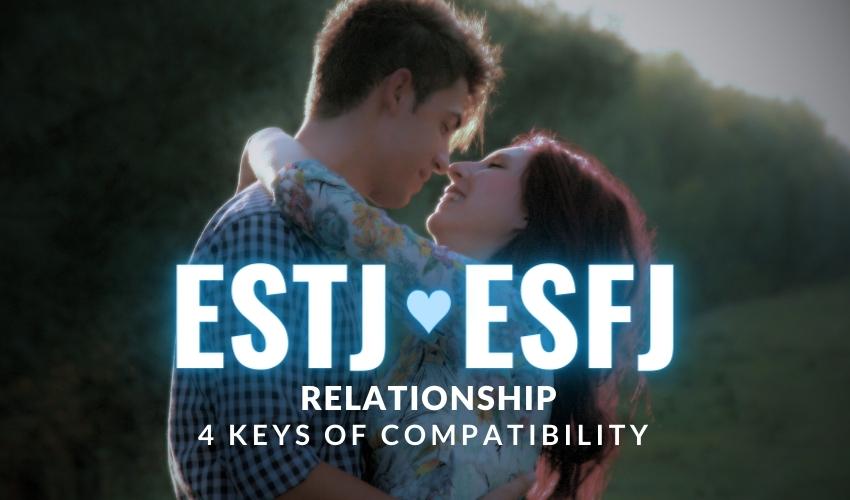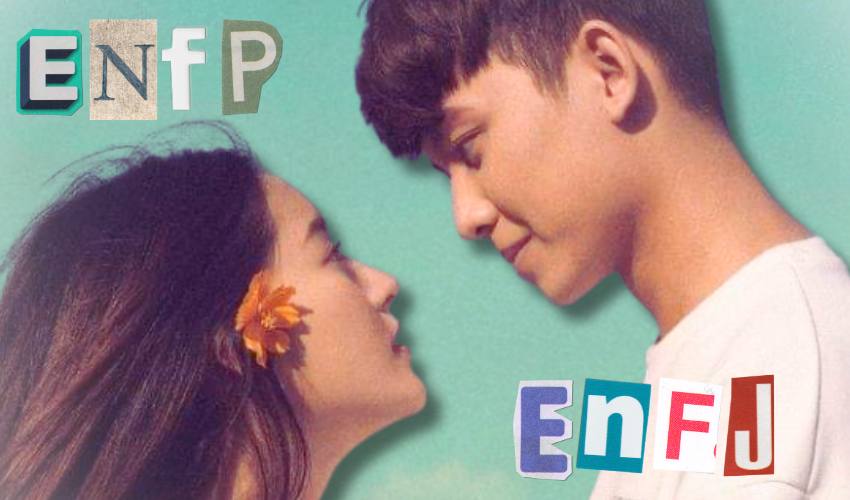In the MBTI, blind-spots in your personality type are the areas you tend to overlook and fail to give adequate consideration for. Here’s a look at what your blank spot is based on Myers-Briggs personality type.
INFP
The General blind-spot associated with INFP, revolves around their lack of objectivity, attentiveness to details and being efficient with their time and energy. INFPs prefer to draw from the wellspring of their intuition and exercise their creativity rather than simply follow steps and prescriptions. INFPs have a strong desire to do things their way and consequently can fail to appreciate the necessity of certain rules and procedures. In managing their own lives, INFPs may suffer problems stemming from a lack of strong structure and planning things out effectively. Although they deep down would like to be more orderly, INFPs may need help from a more organized personality to help them optimize their lives and be more efficient.
INFJ
The blind spot for INFJ revolves around their lack of Se awareness and ability to improvise well under pressure and without adequate preparation. INFJs tend to be more cautious and tentative when undertaking a new task or project. INFJs think long term and like to work out the logistics of what they intend to do in their heads well in advance of taking action on any of it. Furthermore, INFJs may have a tendency to read too much into the future significance or meaning of objects in their environment and overlook the obvious, practical and immediate utility of that object. Generally speaking, because INFJs have such a strong focus on the future implications, they may often overlook the missed opportunities that are right in front of them or excellent options that can be implemented in the here and now.
ENFP
The blind spot for ENFPs will generally be with regards to keeping up with their responsibilities and their tendency to overlook logistical details when they are blinded by idealistic optimism. ENFPs seek to move forward and explore new possibilities and opportunities and they can’t stand to be held back by what they consider to be unnecessary restrictions, routines and over-adherence to convention and convenience. Because of this, they can sometimes miss out on the importance or value of conventional wisdom which can sometimes save them from unnecessary and preventable problems. Having an ISTJ around could help the ENFP by counterbalancing their pie-in-the-sky perspective with a more grounded, practical and responsible outlook.
ENFJ
The blind spot for ENFJs is generally their lack of ability for figuring out how to operate technical or mechanical objects and understanding how they work. ENFJs are more adept at grasping concepts that are explained to them but when it comes to hands on learning and figuring things out on the Fly, they can get tripped up frustrated by it. There is a lot of value in spending a lot of time by yourself and mastering a tool or instrument or craft of some sort. But because ENFJs are more people-oriented, they tend not to subject themselves to this type of isolated and intensive self-development. Furthermore, the ENFJ may also have difficulty recognizing nuanced distinctions between physical objects and have a tendency to overgeneralize.
INTP
The blind spot for INTP is primarily social in nature, especially within the realm of their personal relationships. For INTPs, the intellect is a safe zone for them where they like to spend a great deal of time. Consequently, they are often oblivious as to what’s going on with the people in their lives and how they are affected by INTP’s behaviors such as their tendency to isolate and skip out on opportunities to spend time together. INTP can have difficulty understanding other people’s perspectives and often take for granted that other people can understand the logic in how they operate. In reality, it is not so obvious to other people and they may often have different needs that INTP can easily overlook or fail to recognize as important.
INTJ
The blind spot for INTJ is being alert and responsive to their immediate environment. INTJs tend to live in the world of impressions and images within the private sanctum of their mind. They are good at visualizing the future and sussing out abstract ideas, but when it comes to physical details in their immediate environment, they can be largely unaware of what’s in front of them. The instincts of an INTJ can be largely unreliable when it comes to navigating the physical realm. Like INFJ, INTJs tend to focus on the long-term and overlook what’s going on in the present which can lead to missed opportunities and thrilling moments.
ENTP
The general blind-spot for ENTPs is attention to details and also awareness of their own internal bodily sensation. With their inferior Si, ENTPs are inclined to have a poor sense of what they are experiencing internally. They are not great at gauging the signals and messages that their body tries to send them. They may often pay too little or too much attention to their health. They may have a very libertine and casual disregard for their own health that borders on self-destructive. Because of the nervous energy they often have, ENTPs may often self medicate with various mind-altering cough cough substances. Listening to what their body tells them along with paying heed to the virtues and utility of convention, are a couple of the things that ENTP is prone to overlook.
ENTJ
The blind spot of the ENTJ is cultivating a healthy awareness of their own values and feelings as well as those of others. ENTJs tend to be consumed with a focus on goals and leveraging their time and energy on the logistics and resources needed to achieve those goals. The significance of “right and wrong” play a much lesser part in the ENTJ’s machinations. ENTJs tend to overlook the significance of what they feel and often view it as a form of weakness that just complicates matters distracting them from what needs to be done. For this reason ENTJs can unwittingly trample on the feelings of others and lack the self-awareness necessary for softening their forceful nature with more sensitivity and consideration.
ISTJ
The blind spot for ISTJ centers around their lack of flexibility and openness to risk and novelty. ISTJs tend to cling to what is familiar and true to them while actively avoiding and closing themselves off to experimental ideas and possibilities that require them to venture outside their comfort zone. Furthermore, with their inferior Si, ISTJs are not apt to jump on the bandwagon or be earlier adopters of new technologies, and innovative changes. For this reason, they can be a bit old-fashioned and out of the loop in comparison to their peers and society at large. Although they may be content with keeping things the way they are, ISTJ can miss out on a lot a new and exciting things that can enrich and expand their horizons.
ISFJ
The blind spot for ISFJ lies in their lack of interest or openness to new ideas, possibilities and concepts. ISFJs don’t really care to understand the nuts and bolts of everything. For them, what is more valuable and meaningful is their relationships and the roles they play within the context of their community society or vocation. ISFJs are very service-oriented and are more concerned with that which is real and concrete. They love having a set routine that they can carry-out day in and day out and it is not really in their nature to try and deviate from that. When the conventional way of doing things doesn’t work, ISFJs are inclined to get frustrated and feel helpless. Having an extroverted intuiter like ENTP can be helpful to the ISFJ in troubleshooting and figuring out all the possible reasons for why something doesn’t work and also generating a creative solution to a familiar problem.
ESTJ
The blind spot for the ESTJ is interpersonal sensitivity. With their inferior Fi, ESTJs are often not deeply in touch with their personal sense of values and sense of right and wrong. ESTJs are very objective oriented but they often have a great sense of humor and can be very exciting to be around. At the same time, they can also be very cutting and heavy-handed in how they dispense criticism and disapproval. ESTJ may lack awareness for how that comes across to others and why they should take the time to reflect and introspect on their own personal values. Furthermore, because of their lack of emotional self-awareness, ESTJs may have a lot of pent-up rage that spills out when they are triggered. A lot of this can be prevented if they are willing to explore their feelings and deal with them constructively rather than try to bury them beneath a layer of logic.
ESFJ
The blind spot for ESFJ is generally with regards to they’re inferior Ti. ESFJs are very strong in the interpersonal department, but not so much in the impersonal logical department. They may display a lot of logical inconsistency that stems from their efforts to appease others and keep the harmony on a instance by instance basis rather than address the core problem. ESFJs tend not to be very objective and are willing to bend or change their values to serve their purposes or the purposes of the group. ESFJs tend not to develop a strong set of personal principles and values of their own but rather base their values or orient themselves according to the values of the groups they operate within. To this regard they’re good rule-followers but when it comes to deliberating complicated issues and solving problems ESFJs can be lacking in their ability to work out a genuinely fair and objective solution. Such a solution would require a deeper critical thinking skills, and lateral thinking skills, each of which are the domain of the INTP and ENTP.
ISFP
Generally, the blind spot for ISFP lies in the area of preparation and efficiency. ISFPs are more free flowing in their approach to most tasks. They don’t deliberate too much before getting started and their working style tends to go in casual fits and spurts rather than a steady consistent effort. ISFPs may struggle when it comes to planning things out and devising a workable strategy that they will stick to. It is all too easy for them to break away from their plans and do something else or get sidetracked by some random event. Furthermore, ISFPs can also struggle in the area of responsibilities and fulfilling their duties and routine tasks. The lack of organization can be a big blind spot for ISFP for whom it may not seem like a big deal. they can tolerate quite a bit of disarray before they are compelled to straighten up and make their environment more tidy. It may take the influence of an ENTJ type to help the ISFP learn some organizational discipline and time management skills.
ISTP
The blind spot for the ISTP is primarily in the area of foresight and interpersonal relationships. ISTPs are very present-focused and do not spend a great deal of energy, time or thought on the consequences of their actions before they do them. ISTPs are game to deal with the aftermath, whatever that may be, but sometimes this attitude can result in consequences they can’t afford to deal with. Additionally, ISTPs grapple with much of the same social issues that INTPs deal with including obliviousness to the feelings of others and isolating themselves too much. ISTPs may not realize the damage they sometimes cause with their anger, blunt words and emotional unavailability. It may take some effort on their part to develop more emotional awareness and communicate their feelings more constructively.
ESFP
The blind spot for the ESFP is typically with regards to unrealistic expectations for the future. ESFPs in general tend to focus on the present and this can lead them to make myopic choices that come back to haunt them. Furthermore, as extroverts who live in the moment, ESFPs often lack a sense of self-awareness about themselves that is necessary for assessing their own actions and behaviors in order to self-improve. It is often incumbent upon others to inform them and give them a wake-up call to help them gain some perspective. Furthermore, ESFPs can have a sometimes negative attitude about the future because they want to stay young forever. Consequently, they may neglect to plan adequately and make smarter decisions in the present that will pay off down the road. The influence of and INTJ can help the ESFP avoid making some bad mistakes in pursuit of instant gratification.
ESTP
The blind spot for ESTP typically centers around long-term decision making. ESTPs are great at seizing opportunities and capturing the moment but many of their impulses drive them to seek instant reward and short-term benefits. This mindset allows them to remain undistracted by excessive fear about the what-ifs and potential pitfalls that could cause them to lose their nerve. The adrenaline often carries them away on the path to claim what they desire. However, when it comes to the long-term game, ESTPs may find that their decisions are not ideal or well-thought-out. Furthermore, ESTPs can also be less than attentive and present when it comes to emotional intimacy and quality time with their loved ones. For this reason, they can often be oblivious when it comes to providing what their loved ones need from them which may often be just emotional availability and affection.
related posts:
- What Drives You In Life Based On MBTI Type
- How Competitive You Are Based on MBTI Type
- The First Impression Others Have of You Based on MBTI Type
- The MBTI Types As Iconic Space Aliens
- How Imaginative You Are Based on MBTI Type
- What Each MBTI Type Will Do When The Robots Takeover

- ISFJ and ISTJ in love: 5 Essential Dynamics of their Relationship - February 24, 2024
- ENTP and ENTJ in love: 6 Critical Dynamics of Their Relationship. - February 18, 2024
- ESTJ and ESFJ in love: 4 Key Aspects of their Relationship. - February 12, 2024





